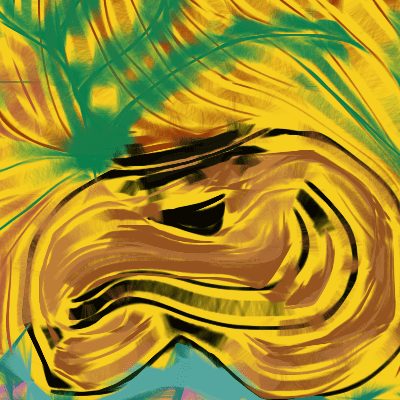This week, before the celebration of the birth of Christ in Beit Layem in a week’s time, Israeli leaders and their U.S. handlers continue their vicious bombardment and genocide of Gaza and its people. It is with a heavy heart that we witness no mercy. From occupation to apartheid to genocide, settler colonialism seems to follow the…
Category: poetry
International day of solidarity with the People of Palestine!
Today is the international day for solidarity with the Palestinian people, These are a people who have experienced expulsion and ethnic cleansing for 75 years now. They have been living in what even former U.S. president Jimmy Carter called an “apartheid state”. Diasporic Palestinians are in many countries across the globe and provide cheaper labour…
Poetry for the Peeps! Poets of Palestine and Elsewhere
I am speechless at what I have been witnessing. The haves and have-nots are no longer about accumulation of capita alone but, as in the times of slavery and conquest, about having humanity and being seen as human. In the face of such violence and dispossession, this poetry cries with her voice to be heard…
Poetry for the Peeps! Silvio Rodriguez on Chile
This September 11 2023 marks 50 years since the terrible coup in Chile, replacing democratically elected progressive President Salvador Allende with CIA and ITT backed dictator General Pinochet. Assassinating Allende and torturing and killing hundreds and hundreds of other local activists, artists and social organizers, the new military government brought in the first Neo-liberal experiment…
Poetry for the Peeps! More Dalton!
Some more Roque Dalton for us to enjoy. I have shared his work in a previous post with a small biography from Wikipedia. His poetry was very important for Latin American writing and for revolutionary cultural producers from all over the world. His time was cut short by an assassination by his ex-comrades and El…
Poetry for the Peeps! Roque Dalton
It’s a hot September day. Unseasonably so. Weather extremes are being felt more and more frequently, affecting millions and millions around the globe. Stewardship of the land and waters that sustain us has fallen by the wayside. Hunger is a global disgrace. And even poets– not economists or think- tanks, were able to pin-point the…
Nonsense Verse for this Metaverse!
I’ve been under the weather and tried reading some silly stuff to cheer myself up! Here I share Lewis Carroll’s poem, one of so many worthy of both nonsense and great sense! Little Birds is from Sylvie and Bruno, a rather peculiar and rambling story, but dotted with some good poems! Enjoy… Little Birds are…
Into the Throat of Summer
I took the name of this blog post from Jenny Xie’s (USA) “Chinatown Diptych”, one of her travel poems set in a summer in New York’s Chinatown. And allthough set in summer, many of these poems are melancholy, rather than frothy Hallmark tidings. I decided to share some poems of a rather random selection of…
Let’s at least, leave Flowers! Let’s at least, leave, Songs!
It’s been more than a year since I have been away from this blog and writing, generally. Words seem rusty and disused, and the world outside has twisted and contorted itself in ever more lexicons of cruelty.Humanity has been turned into soundbytes and fleeting visual catastrophes that seem to lead to no impact with regards…
Now That I am a God…
On April 28th, one of Cuba’s outstanding women poets, among many, Fina Garcia Marruz, celebrated her 99th birthday. This writer was part of the cultural and literary circle of the Origenes magazine in the pre-revolutionary period and remained committed to the spirit and ideals of Jose Marti, making her home in Cuba after the 1959…
Questions of War
Kaushalya Bannerji March 2022 getting us ready?for a flag that is a lielike all flags? getting us ready?for a war that is a lielike all wars? getting us ready?to lovethe executioner more than ourslves? getting us ready?to watch agape and twisted,inside knowing there issome other way Questiones de Guerra, Kaushalya Bannerji, marzo 2022 preparándonos? por…
World Poetry Day! Songs in Bleak Times
Speak out!, Faiz Ahmad Faiz, (1911-1984) Pakistantranslated byMustansir Dalvi Speak out!Your words are free.Speak up!Your tongue is still your own.Your body remains yoursramrod, erect.Speak out!Your life is still your own. Look!How in your smithy’s forgeflames soar;iron glows red.How the lockshave opened yawsand every chain,unlinked, now spreads. The short time left to youis enough. Speak up,before…
Rich Man’s War, Poor Man’s Blood: Poetry Against War
I didn’t think that yet another outbreak of war would be the only response in a world reeling from the impact of pre-existing wars and the covid19 pandemic. But here we are, in a bizarre lexicon of words and media where everything seems stripped of meaning and context, like a tsunami of global anomie. And because…
All of Us or None! A Belated Return to the Virtual World
It’s been ages since I have posted on the blog. Pandemic fatigue and the onset of winter and lock-downs have exacerbated SADness and made writing a difficult chore. While I have been doing some drawing, I haven’t mustered up the focus to write. This blog, pays homage to the work of two poets, February birthday…
The Close and Holy Darkness! Winter Solstice and the Song of Poetry: A Moment with Dylan Thomas
Every few years around this time, I read or see or hear a version of Dylan Thomas’ A Child’s Christmas in Wales. Such a beautiful prose poem where the words sing like the wind and the sea herself. This year, I drew to a reading of the piece, as I found the very LP record…
